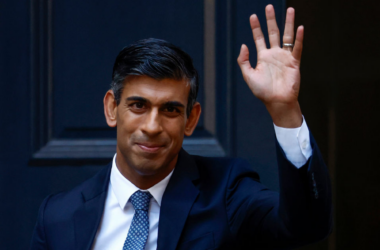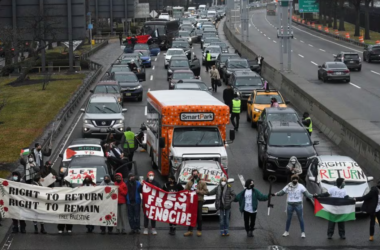Thirty years after transitioning peacefully from apartheid to democracy, South Africa stands on the brink of significant political change. The African National Congress (ANC), which has held power since the first democratic election in 1994, is facing a potential decline in influence in the upcoming election on Wednesday.
The ANC, led by President Cyril Ramaphosa, has historically focused on economic inclusivity to improve the living standards of the disadvantaged. Despite these efforts, the party has struggled to achieve consistent success, and current polling suggests that the ANC’s share of the vote could fall below 50% for the first time. In the last national election, the ANC secured 57.5% of the vote, but its dominance in key areas, such as the economic hub of Gauteng, has been waning.
South Africa’s population of 62 million includes over 27.6 million registered voters. However, rising voter apathy is a concern. The turnout in the 2019 national assembly election was 66%, already down 7 percentage points from the previous vote. Even with maximum voter turnout, the ANC is expected to drop below 50%.
The country faces numerous systemic issues. South Africa, the most industrialized nation in Africa, suffers from a weak power grid that has caused frequent blackouts, hampering development and manufacturing. The unemployment rate stands at nearly 33%, one of the highest in the world, while economic growth is projected to remain below 1% this year. Additionally, corruption scandals have exposed governance weaknesses within the ANC and its affiliates. The nation also contends with a high violent crime rate, with 45 murders per 100,000 people.
Voters have a wider array of choices in this election, with 14,889 candidates vying for 887 seats across at least 70 parties. President Ramaphosa’s main challengers include John Steenhuisen from the Democratic Alliance and Julius Malema from the Economic Freedom Fighters. Former President Jacob Zuma, who now leads the uMkhonto weSizwe party, is also a notable contender after winning a court battle to run for parliament despite his previous imprisonment for failing to appear at a corruption inquiry.
If the polls are accurate, South Africa may see its first coalition government. Analysts from Fitch Solutions anticipate the ANC forming a coalition with smaller parties, allowing it to remain the primary policy driver. However, they also highlight several possible scenarios that could negatively affect markets, including a slim ANC majority, an ANC-Economic Freedom Fighters coalition, or a win by the opposition Multi-Party Charter coalition.
“While any of the coalition groupings will pose headwinds to policymaking, negatively impacting investor sentiment, we flag that an ANC-EFF coalition would likely result in a significantly adverse market reaction, negatively impacting bond yields and the rand,” the Fitch Solutions analysts wrote earlier this month.
As South Africa heads into this pivotal election, the outcome will not only shape the nation’s political landscape but also have far-reaching implications for its economic and social future.








